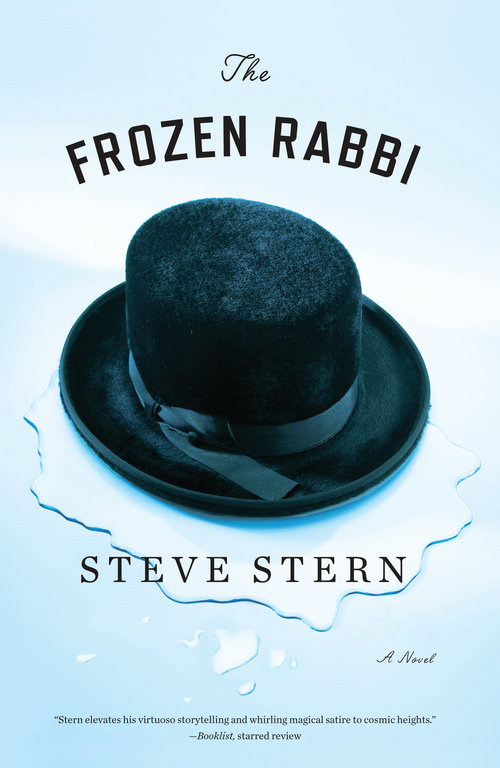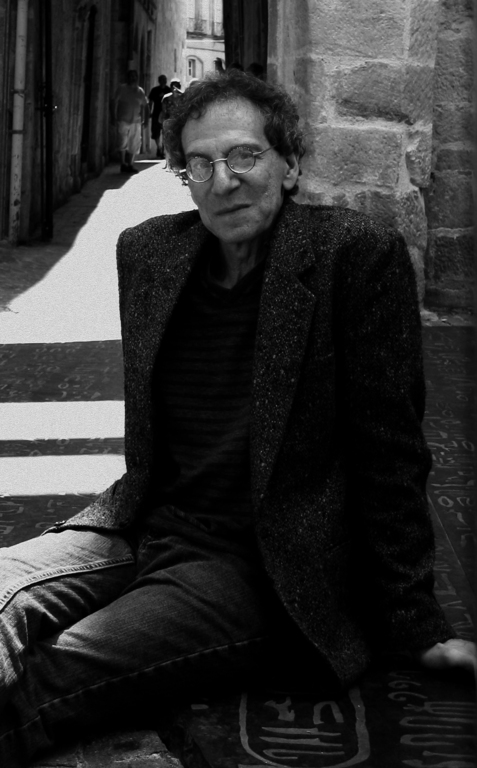Q and A with Steve Stern
Steve Stern: It’s a very literal title. I woke up pretty much and said I’d like to write a story about a frozen rabbi [laughs]. The perennial question of where your ideas come from I’ve never been able to adequately answer — the angels speak to me [laughs again]. As you probably realize from my stuff, I read a lot of folklore and in folklore, Jewish folklore in particular, there always seemed to be this kind of supernatural element that is perfectly natural in that world, especially the world of Yiddish fiction. I sort of draw upon/steal from that on occasion. I grew up in a Reform congregation in Memphis that was trying its best to be invisible. I thought I was a Methodist until I was 35-years-old. Then I stumbled down a rabbit hole to Jewish folklore and mysticism. It was about coming around to a heritage that I never really owned before. It’s really one of those typical traditional born-again experiences that’s too corny to own up to.
MO: When did this happen?
SS: I got a job when I was in my early-to-mid 30’s at a folklore center [in Memphis] that specialized in the African American heritage of the city and I was transcribing these tapes about these old characters of Beale street, the main black street of the South — bluesmen, promoters and gamblers and this kind of honky tonk district. It turned out that there was also a Jewish dimension — pawn brokers — and I was assigned to interview them. They kept on talking about the neighborhood of Pinch [a Jewish neighborhood in Memphis] that I heard nothing about as a kid. I began to interview these old survivors of this Jewish ghetto that pretty much disintegrated before I was born. The stories sort of reassembled the neighborhood in my head and gave me a setting for my own stories. I wrote “Lazar Malkin Enters Heaven” a collection of stories set in Pitch and the old people were so grateful for my mythologization that they sued me for a quarter of a million dollars. It destroyed what little purchase I had on a literary career in 1987. In one story, a good Jewish daughter eats a ham sandwich in her father’s house and I used the actual name of someone who was alive. She sued me for libel.
MO: Has Memphis cooled for you?
SS: I went back there recently and did a book signing at a local book store that’s owned by a friend of mine. They treated me like a returning hero. It was amazing; there’s no place else on earth where Steve Stern gets that kind of treatment. I guess they’ve forgotten about the insidious malicious character I am.
MO: Your writing has been compared to both Mark Twain and Shalom Aleichem.
SS: On a good day, I might think I’m doing something slightly original. On a bad day, which is most days, I wonder who do I think I am, and who am I to poach this kind of material? It seems like smoke and mirrors and I’m an utter fraud and this isn’t a milieu I was born into. It’s all book-learned and learned from secular sources. I try to turn that into first-hand experience, but I’ll always feel like something of a fake. I think I’ll die apologizing to kosher writers like [Cynthia] Ozick and [Isaac Bashevis] Singer, though Singer’s dead so it’s too late for that.
MO: What do you think about the trend of Yiddish in fiction?
SS: The newer writers are doing it fast and loose — it’s like yiddishkeit-lite. In order for the writing to be kosher, at least by me, you can’t drag in a golem or a dybbuk without dragging in the whole history, culture, and tradition. It’s all attached in the same way the Yiddish language comes with the entire history and tradition attached to it. If you disengage it then it does become something artificial. Some of the younger authors do something of a disservice to the tradition by disengaging these images and motifs from the source. The problem is that I’m not sure readers want the whole megilah because it’s a burden. I feel that to be authentic, to use these materials authentically, you have to keep the connection intact and I think readers, for the most part, are not willing to engage in that tradition in its entirely with all of its resonance. It’s too much.
MO: Can you disengage the religion from the language?
SS: No. I think the religion, the heritage, diffuses the language. One of Ozick’s best pieces is about a Yiddish writer in America who is looking for a translator. He [the narrator] sets out to define what Yiddishkeit means in the story; he talks about how you can’t be a modernist because there can’t be “The Wasteland” [the prose poem by T.S. Eliot] in Yiddish literature since you cannot disengage the language from its history. Yiddish has its roots in the Torah; to sever those roots is to essentially kill the language and the culture that supports the language.

 56.0°,
Overcast
56.0°,
Overcast 







